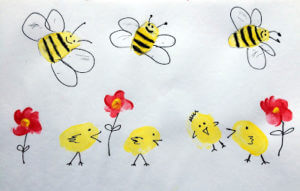Wow, the major disruptions in our own family life from the enforced lockdown, is difficult, frustrating and frightening. Our children will remember this for a long time no school, but no holiday freedoms either! In that spirit, here are a few ideas to help make those memories (at least somewhat) happy.
Addressing Your Child’s Fears
Parents can do a lot to answer children’s fears. Here are the facts as we know them: although COVID-19 is certainly frightening, it is very unusual for children or otherwise healthy parents under 60 to become very sick. Therefore, you can honestly answer your children’s fears by saying that you’re not worried about them or yourselves. This is especially important because public health experts predict most of us will be infected before the pandemic is over—but the vast majority of people will have only a mild illness. Should the day come when you or your children are infected with COVID-19, they will be prepared and less frightened.
Sometimes, children may worry but don’t know how to bring up the topic. Starting the conversation with simple, open-ended questions: “What have you heard about Coronavirus?” “What are you most worried about?” will help key into your child’s thought and concerns.
Activities with your Child
Whilst we have limited time that we are allowed to be out for exercise each day it’s great to get some fresh air, get exercise and stay healthy.  Remember social distancing and use your best judgment to ensure your activities are in -keeping with public health recommendations but do get out in nature if you are able to. Take walks, runs, bike rides or play catch.
Remember social distancing and use your best judgment to ensure your activities are in -keeping with public health recommendations but do get out in nature if you are able to. Take walks, runs, bike rides or play catch.
As for indoor activities, drawing, painting, playing with clay, reading, and board games all come to mind. You can click the picture for finger-printing ideas, or check out our resources section for downloads on horsemanship and creative drawing (need a link here). If your children are out of school with homework assignments, make sure they have time set aside to work on these. Additionally, it can be quite comforting for parents or grandparents to recall other difficult times, as well as how they passed the time when normal activities were disrupted, storytelling is a great way of exploring difficult issues.
Connecting with family
Older relatives may feel particularly isolated, as they are more vulnerable to this infection. Have your kids send them cards, pictures, or other projects that they can display in their rooms—or even bake cakes or biscuits if you live close by. Depending on the circumstances in which they live, social distancing recommendations, your health and your children’s health, it may not be possible to visit in person, but we can still reach out to each other in creative ways, this is where social media and face-time can really make a difference. Children can help their elders realise how much they matter in the world.
Balancing Parenting and Work
Many parents are facing great difficulties with managing their work responsibilities and children who are now suddenly at home without school or childcare. Some parents are particularly vulnerable to these recent personal and professional disruptions. It is time for us to raise our voices to protect children who will be particularly affected. Working within our communities and with government authorities:
- Many families will need food assistance.
- Parents who are hourly workers or work in the gig economy are particularly vulnerable to downturns in business.
- Many of us rely on our social networks for psychological support. Reaching out to isolated parents (this could be most of us!) can be the key to us all emerging undamaged.
Please use the “Contact Us” page to offer other suggestions. With some creativity, most of us can create positive memories from this incredibly disruptive time. Imagine your children telling their children and grandchildren about the great virus of 2020—and how their family weathered the crisis together.
